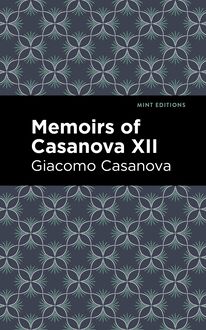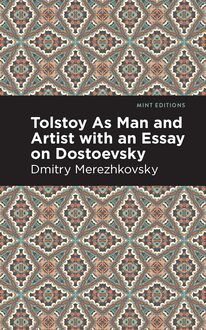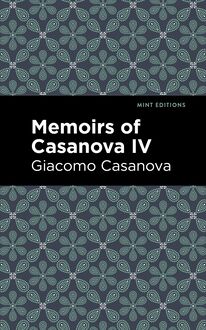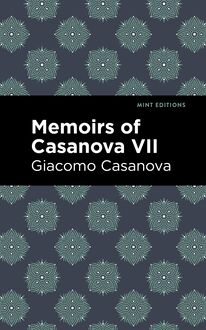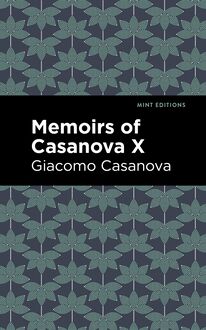-
 Univers
Univers
-
 Ebooks
Ebooks
-
 Livres audio
Livres audio
-
 Presse
Presse
-
 Podcasts
Podcasts
-
 BD
BD
-
 Documents
Documents
-
- Cours
- Révisions
- Ressources pédagogiques
- Sciences de l’éducation
- Manuels scolaires
- Langues
- Travaux de classe
- Annales de BEP
- Etudes supérieures
- Maternelle et primaire
- Fiches de lecture
- Orientation scolaire
- Méthodologie
- Corrigés de devoir
- Annales d’examens et concours
- Annales du bac
- Annales du brevet
- Rapports de stage
La lecture à portée de main
Vous pourrez modifier la taille du texte de cet ouvrage
Découvre YouScribe en t'inscrivant gratuitement
Je m'inscrisDécouvre YouScribe en t'inscrivant gratuitement
Je m'inscrisEn savoir plus
Vous pourrez modifier la taille du texte de cet ouvrage
En savoir plus

Description
A woman stuck in a loveless marriage is torn between her duty and desire to reconcile with a former fiancé after an extended absence. The Judgement House tests the importance of one’s family, integrity and social status. Jasmine Grenfel is a determined woman who has encountered her share of rich and powerful men. Rudyard Byng is a successful entrepreneur, while Ian Stafford is a rising political star. Both men are enchanted by Jasmine but only one can take her hand in marriage. Jasmine chooses a life of wealth and influence over one of love and happiness. She encounters several obstacles including a murder that exposes her sordid past. Gilbert Parker delivers an unconventional love story set against the backdrop of an impending war. It’s a stark contrast that highlights the superficial nature of the characters’ exploits. The Judgement House is an engaging read that’s fueled by murder, intrigue and missed opportunities. With an eye-catching new cover, and professionally typeset manuscript, this edition of The Judgement House is both modern and readable.
Sujets
Informations
| Publié par | Mint Editions |
| Date de parution | 21 mai 2021 |
| Nombre de lectures | 0 |
| EAN13 | 9781513276083 |
| Langue | English |
| Poids de l'ouvrage | 2 Mo |
Informations légales : prix de location à la page 0,0500€. Cette information est donnée uniquement à titre indicatif conformément à la législation en vigueur.
Extrait
The Judgment House
Gilbert Parker
The Judgment House was first published in 1913.
This edition published by Mint Editions 2020.
ISBN 9781513271088 | E-ISBN 9781513276083
Published by Mint Editions®
minteditionbooks .com
Publishing Director: Jennifer Newens
Design & Production: Rachel Lopez Metzger
Project Manager: Micaela Clark
Typesetting: Westchester Publishing Services
C ONTENTS B OOK I I. T HE J ASMINE F LOWER II. T HE U NDERGROUND W ORLD III. A D AUGHTER OF T YRE IV. T HE P ARTNERS M EET V. A W OMAN T ELLS H ER S TORY VI. W ITHIN THE P OWER -H OUSE B OOK II VII. T HREE Y EARS L ATER VIII. “H E S HALL N OT T REAT M E S O ” IX. T HE A PPIAN W AY X. A N A RROW F INDS A B REAST XI. I N W ALES , W HERE J IGGER P LAYS H IS P ART XII. T HE K EY IN THE L OCK XIII. “I W ILL N OT S ING ” XIV. T HE B AAS B OOK III XV. T HE W ORLD W ELL L OST XVI. T HE C OMING OF THE B AAS XVII. I S T HERE N O H ELP FOR THESE T HINGS ? XVIII. L ANDRASSY ’ S L AST S TROKE XIX. T O - MORROW … P REPARE ! XX. T HE F URNACE D OOR XXI. T HE B URNING F IERY F URNACE XXII. I N W HICH F ELLOWES G OES A J OURNEY XXIII. “M ORE WAS L OST AT M OHACKSFIELD ” XXIV. O NE W HO C AME S EARCHING XXV. W HEREIN THE L OST IS F OUND XXVI. J ASMINE ’ S L ETTER XXVII. K ROOL XXVIII. “T HE B ATTLE C RY OF F REEDOM ” B OOK IV XXIX. T HE M ENACE OF THE M OUNTAIN XXX. “A ND N EVER THE T WAIN S HALL M EET !” XXXI. T HE G REY H ORSE AND ITS R IDER XXXII. T HE W ORLD ’ S F OUNDLING XXXIII. “A LAMACHTIG !” XXXIV. “T HE A LPINE F ELLOW ” XXXV. A T B RINKWORT ’ S F ARM XXXVI. S PRINGS OF H EALING XXXVII. U NDER THE G UN XXXVIII. “P HEIDIPPIDES ” XXXIX. “T HE R OAD IS C LEAR ”
BOOK I
I
T HE J ASMINE F LOWER
The music throbbed in a voice of singular and delicate power; the air was resonant with melody, love and pain. The meanest Italian in the gallery far up beneath the ceiling, the most exalted of the land in the boxes and the stalls, leaned indulgently forward, to be swept by this sweet storm of song. They yielded themselves utterly to the power of the triumphant debutante who was making “Manassa” the musical feast of the year, renewing to Covent Garden a reputation which recent lack of enterprise had somewhat forfeited.
Yet, apparently, not all the vast audience were hypnotized by the unknown and unheralded singer, whose stage name was Al’mah. At the moment of the opera’s supreme appeal the eyes of three people at least were not in the thraldom of the singer. Seated at the end of the first row of the stalls was a fair, slim, graciously attired man of about thirty, who, turning in his seat so that nearly the whole house was in his circle of vision, stroked his golden moustache, and ran his eyes over the thousands of faces with a smile of pride and satisfaction which in a less handsome man would have been almost a leer. His name was Adrian Fellowes.
Either the opera and the singer had no charms for Adrian Fellowes, or else he had heard both so often that, without doing violence to his musical sense, he could afford to study the effect of this wonderful effort upon the mob of London, mastered by the radiant being on the stage. Very sleek, handsome, and material he looked; of happy colour, and, apparently, with a mind and soul in which no conflicts ever raged—to the advantage of his attractive exterior. Only at the summit of the applause did he turn to the stage again. Then it was with the gloating look of the gambler who swings from the roulette-table with the winnings of a great coup, cynical joy in his eyes that he has beaten the Bank, conquered the dark spirit which has tricked him so often. Now the cold-blue eyes caught, for a second, the dark-brown eyes of the Celtic singer, which laughed at him gaily, victoriously, eagerly, and then again drank in the light and the joy of the myriad faces before her.
In a box opposite the royal box were two people, a man and a very young woman, who also in the crise of the opera were not looking at the stage. The eyes of the man, sitting well back—purposely, so that he might see her without marked observation—were fixed upon the rose-tinted, delicate features of the girl in a joyous blue silk gown, which was so perfect a contrast to the golden hair and wonderful colour of her face. Her eyes were fixed upon her lap, the lids half closed, as though in reverie, yet with that perspicuous and reflective look which showed her conscious of all that was passing round her—even the effect of her own pose. Her name was Jasmine Grenfel.
She was not oblivious of the music. Her heart beat faster because of it; and a temperament adjustable to every mood and turn of human feeling was answering to the poignancy of the opera; yet her youth, child-likeness, and natural spontaneity were controlled by an elate consciousness. She was responsive to the passionate harmony; but she was also acutely sensitive to the bold yet deferential appeal to her emotions of the dark, distinguished, bearded man at her side, with the brown eyes and the Grecian profile, whose years spent in the Foreign Office and at embassies on the Continent had given him a tact and an insinuating address peculiarly alluring to her sex. She was well aware of Ian Stafford’s ambitions, and had come to the point where she delighted in them, and had thought of sharing in them, “for weal or for woe”; but she would probably have resented the suggestion that his comparative poverty was weighed against her natural inclinations and his real and honest passion. For she had her ambitions, too; and when she had scanned the royal box that night, she had felt that something only little less than a diadem would really satisfy her.
Then it was that she had turned meditatively towards another occupant of her box, who sat beside her pretty stepmother—a big, bronzed, clean-shaven, strong-faced man of about the same age as Ian Stafford of the Foreign Office, who had brought him that night at her request. Ian had called him, “my South African nabob,” in tribute to the millions he had made with Cecil Rhodes and others at Kimberley and on the Rand. At first sight of the forceful and rather ungainly form she had inwardly contrasted it with the figure of Ian Stafford and that other spring-time figure of a man at the end of the first row in the stalls, towards which the prima donna had flashed one trusting, happy glance, and with which she herself had been familiar since her childhood. The contrast had not been wholly to the advantage of the nabob; though, to be sure, he was simply arrayed—as if, indeed, he were not worth a thousand a year. Certainly he had about him a sense of power, but his occasional laugh was too vigorous for one whose own great sense of humour was conveyed by an infectious, rippling murmur delightful to hear.
Rudyard Byng was worth three millions of pounds, and that she interested him was evident by the sudden arrest of his look and his movements when introduced to her. Ian Stafford had noted this look; but he had seen many another man look at Jasmine Grenfel with just as much natural and unbidden interest, and he shrugged the shoulders of his mind; for the millions alone would not influence her, that was sure. Had she not a comfortable fortune of her own? Besides, Byng was not the kind of man to capture Jasmine’s fastidious sense and nature. So much had happened between Jasmine and himself, so deep an understanding had grown up between them, that it only remained to bring her to the last court of inquiry and get reply to a vital question—already put in a thousand ways and answered to his perfect satisfaction. Indeed, there was between Jasmine and himself the equivalent of a betrothal. He had asked her to marry him, and she had not said no; but she had bargained for time to “prepare”; that she should have another year in which to be gay in a gay world and, in her own words, “walk the primrose path of pleasure untrammelled and alone, save for my dear friend Mrs. Grundy.”
Since that moment he had been quite sure that all was well. And now the year was nearly up, and she had not changed; had, indeed, grown more confiding and delicately dependent in manner towards him, though seeing him but seldom alone.
As Ian Stafford looked at her now, he kept saying to himself, “So exquisite and so clever, what will she not be at thirty! So well poised, and yet so sweetly child-like dear dresden-china Jasmine.”
That was what she looked like—a lovely thing of the time of Boucher in dresden china.
At last, as though conscious of what was going on in his mind, she slowly turned her drooping eyes towards him, and, over her shoulder, as he quickly leaned forward, she said in a low voice which the others could not hear:
“I am too young, and not clever enough to understand all the music means—is that what you are thinking?”
He shook his head in negation, and his dark-brown eyes commanded hers, but still deferentially, as he said: “You know of what I was thinking. You will be forever young, but yours was always—will always be—the wisdom of the wise. I’d like to have been as clever at twenty-two.”
“How trying that you should know my age so exactly—it darkens the future,” she rejoined with a soft little laugh; then, suddenly, a cloud passed over her face. It weighed down her eyelids, and she gazed before her into space with a strange, perplexed, and timorous anxiety. What did she see? Nothing that was light and joyous, for her small sensuous lips drew closer, and the fan she held in her lap slipped from her fingers to the floor.
This aroused her, and Stafford, as he returned the fan to her, said into a face again alive to the present: “You look as though you were trying to summon the sable spirits of a sombre future.”
Her fine pink-white shoulders lifted a little and, once more quite self-possessed, she rejoined, lightly, “I have a chameleon mind; it chimes with every mood and circumstance.”
Suddenly her eyes rested on Rudyard Byng, and something in the rough po
-
 Univers
Univers
-
 Ebooks
Ebooks
-
 Livres audio
Livres audio
-
 Presse
Presse
-
 Podcasts
Podcasts
-
 BD
BD
-
 Documents
Documents
-
Jeunesse
-
Littérature
-
Ressources professionnelles
-
Santé et bien-être
-
Savoirs
-
Education
-
Loisirs et hobbies
-
Art, musique et cinéma
-
Actualité et débat de société
-
Jeunesse
-
Littérature
-
Ressources professionnelles
-
Santé et bien-être
-
Savoirs
-
Education
-
Loisirs et hobbies
-
Art, musique et cinéma
-
Actualité et débat de société
-
Actualités
-
Lifestyle
-
Presse jeunesse
-
Presse professionnelle
-
Pratique
-
Presse sportive
-
Presse internationale
-
Culture & Médias
-
Action et Aventures
-
Science-fiction et Fantasy
-
Société
-
Jeunesse
-
Littérature
-
Ressources professionnelles
-
Santé et bien-être
-
Savoirs
-
Education
-
Loisirs et hobbies
-
Art, musique et cinéma
-
Actualité et débat de société
- Cours
- Révisions
- Ressources pédagogiques
- Sciences de l’éducation
- Manuels scolaires
- Langues
- Travaux de classe
- Annales de BEP
- Etudes supérieures
- Maternelle et primaire
- Fiches de lecture
- Orientation scolaire
- Méthodologie
- Corrigés de devoir
- Annales d’examens et concours
- Annales du bac
- Annales du brevet
- Rapports de stage



